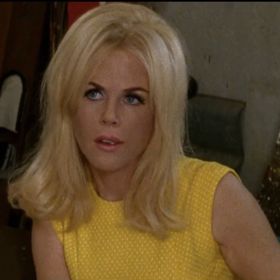'The Paperboy' Delivers Thrilling Nonsense

3/5
“If anyone’s gonna piss on him, it’s gonna be me,” bawls a peroxide blonde fake-baked Nicole Kidman, as she squats down on the sun-drenched, cherubic face of Zac Efron. A moment this unexpected and tasteless deserves to be canonized alongside anything uttered by the sublime Elizabeth Berkley in Showgirls. Unfortunately, Lee Daniels’ The Paperboy shoots for greatness (a serious meditation on Southern race relations and sexuality in the 1960s) instead of fully embracing what it should be: a campy cinematic cesspool in which highly talented actors are ritually degraded in jaw-dropping, lurid scenes. By the time the camera racks focus from Kidman’s golden stream to the crashing waves behind her, you’ll know if you can swallow the far-more-graphic humiliations awaiting Matthew McConaughey in the film’s final hour.
In arguably the trashiest role of her career, Kidman plays Charlotte Bless, a nymphomaniac with a penchant for death-row inmates. In the sweaty summer of 1969 (when else?), Bless enlists the help of Miami journalist Ward Jansen (McConaughey) and his black colleague Yardley Acheman (David Oyelowo) to investigate the case of her psychotic prison pen-pal-cum-fiancé, Hillary van Wetter (John Cusack), who was convicted for murdering a cop. Eagerly coming along for the ride is Ward’s 20-year-old brother, Jack (Efron), who spends a generous chunk of his screen time prancing around in his tighty whities.
As the trio chases down clues attempting to prove van Wetter’s innocence, they are easily distracted by a variety of intriguing psychosexual dynamics. When they all visit the inmate in prison, Charlotte furiously rubs her crotch until the madman stains his pants. At home, Jack fantasizes about Charlotte, when he’s not reading Lolita or shamelessly flirting with the house maid Anita (Macy Gray). All this leads up to a Grand Guignol finale, featuring rape, murder, rough sex, and bizarre cutaways to crocodiles. Even when it defies logic, The Paperboy is still a compulsively watchable and thrilling train wreck.
Gray serves as the film’s unsuspecting narrator. The first scene begins with her answering questions from a reporter; he quickly disappears and she starts talking directly to us, explaining how odd she feels to be chatting over such gratuitous content. Her explanations and commentary are often so jarring that I wonder if her entire voiceover track was added in post-production to help rescue a muddled story from incoherence.
When he adapted Precious: Based on the Novel Push by Sapphire, Daniels seamlessly blended a brutal coming-of-age story with splashes of melodrama, fantasy and even comedy. This time, when wrestling with Pete Dexter’s novel, Daniels relies on a grab bag of hackneyed devices: soft focus, slow motion, zooms, split screens, oversaturated colors, dream sequences, and excessive water imagery. As a result, Daniels never has a firm grasp on the film’s tone or style; each scene looks like it was randomly processed with a different Instagram filter. While the performances of this top-notch ensemble are always compelling, The Paperboy never amounts to more than the sum of its shocking distractions.
RELATED ARTICLES
Get the most-revealing celebrity conversations with the uInterview podcast!







Leave a comment